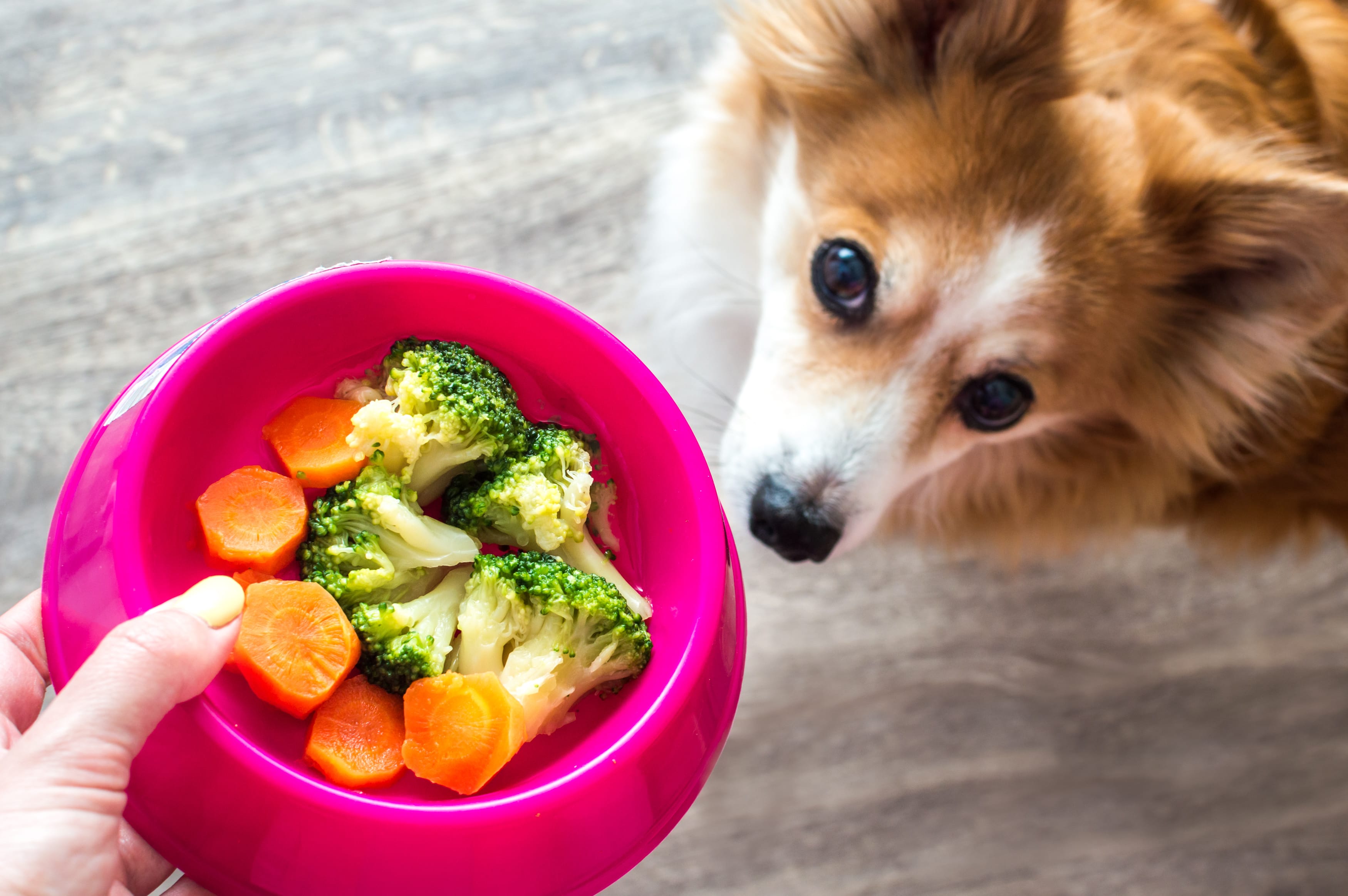Understanding what foods are safe for dogs to eat is crucial for every pet owner. Our canine companions, with their endearing loyalty and playful nature, deserve our utmost care, and a large part of that care revolves around their diet. This article aims to delve into the fascinating world of canine nutrition, exploring which foods are safe and beneficial, and which ones can pose significant health risks. By understanding the nuances of a dog’s dietary needs, we can ensure that our furry friends thrive and enjoy a long, healthy, and happy life alongside us. We’ll explore the science behind a dog’s dietary needs, examine the specifics of various food groups, discuss cooking methods, and emphasize the importance of moderation and responsible choices in providing nourishment to our canine companions.
Understanding Canine Nutrition
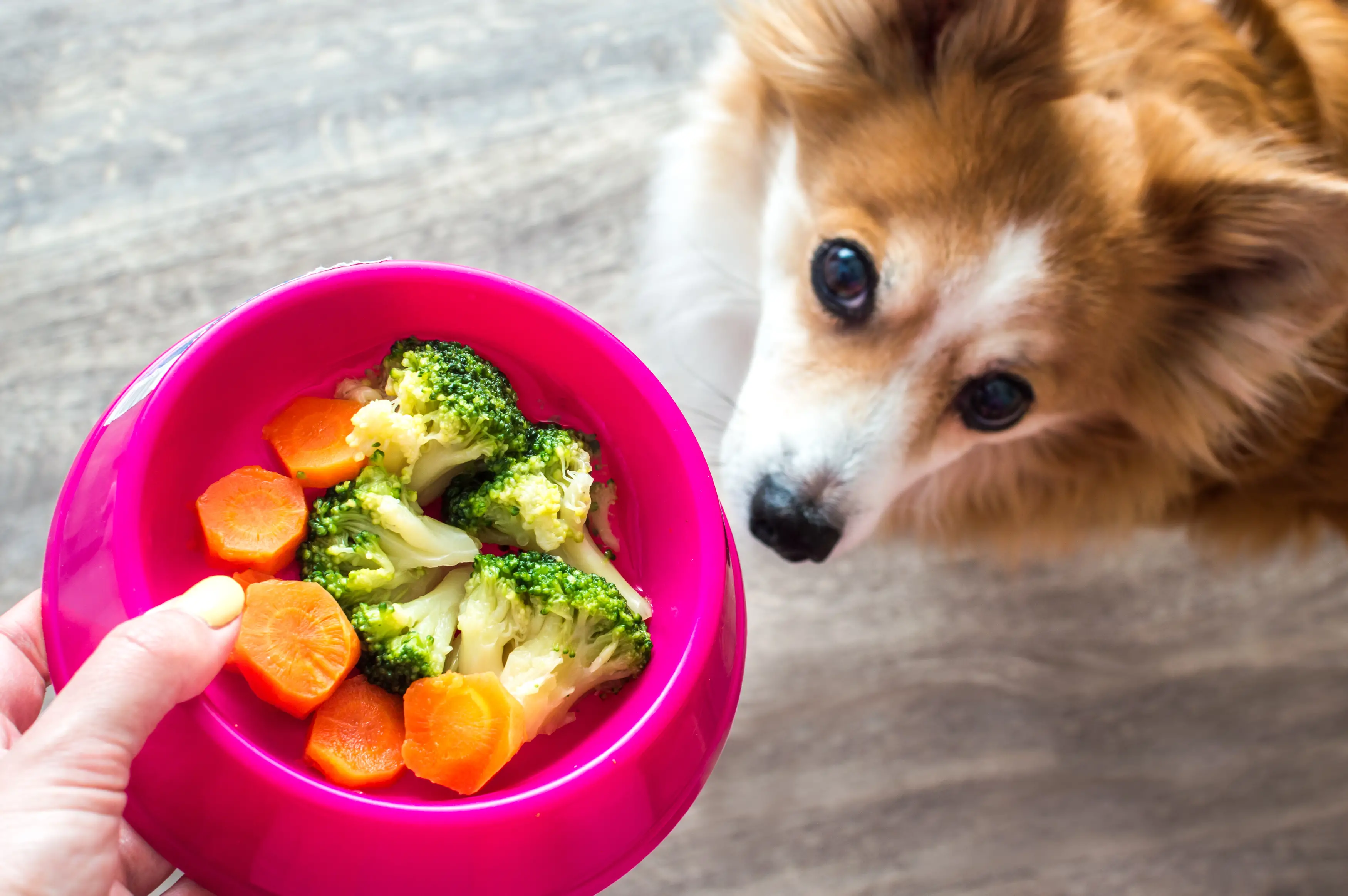
The foundation of responsible pet ownership lies in understanding the specific needs of our canine companions. Canine nutrition is a multifaceted field encompassing not just the types of food we feed our dogs, but also the quantities, preparation methods, and the overall balance of the diet. Providing optimal nutrition for our dogs isn’t simply about fulfilling their basic energy needs; it’s about fostering their overall well-being, enhancing their vitality, and supporting their physical and mental development.
The Differences Between Dog and Human Dietary Needs
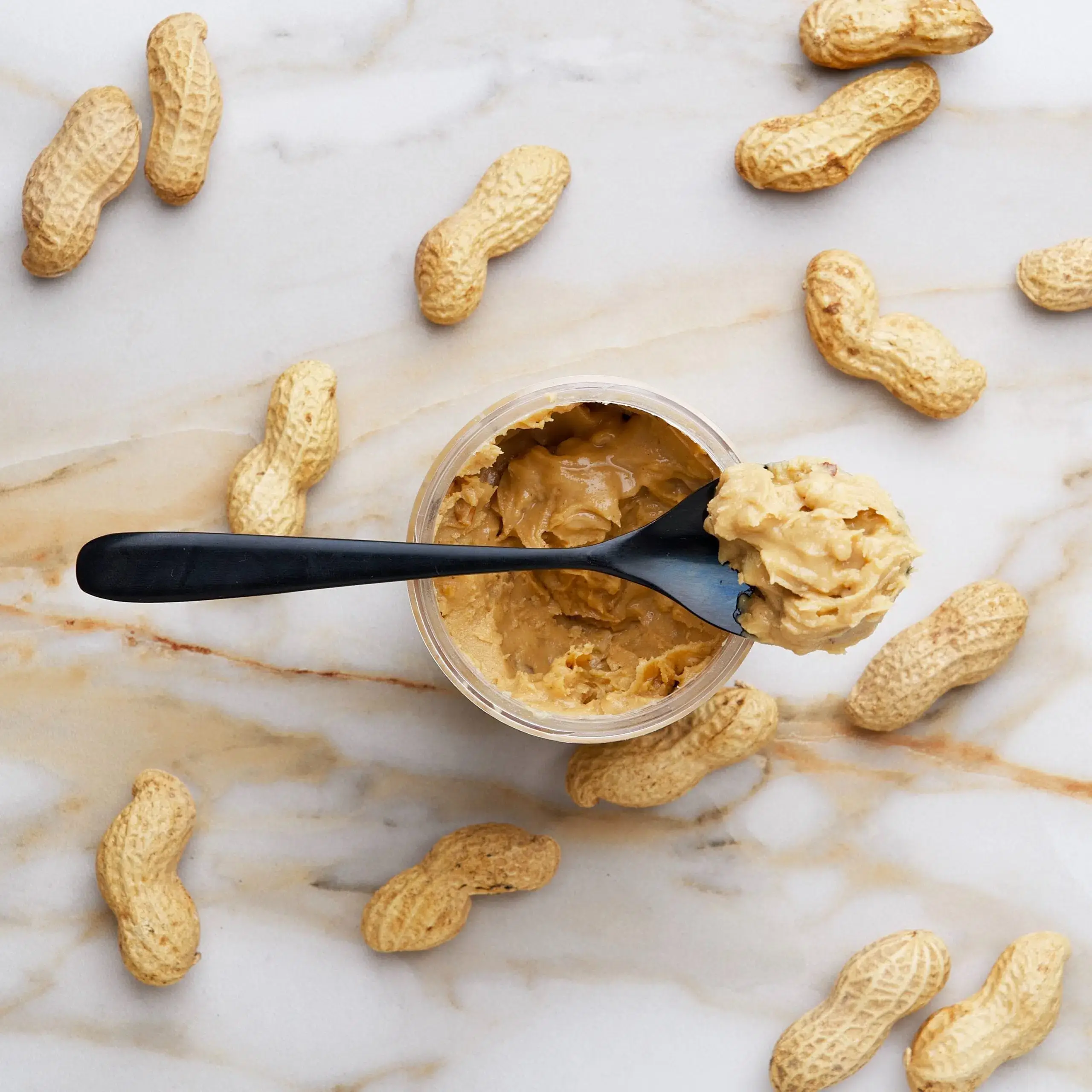
While we share a planet and often share our meals with our dogs, it’s important to acknowledge that our dietary needs are distinct. Humans and dogs have different physiological systems and digestive processes. For example, the delicate balance of vitamins and minerals that is essential for human health may not necessarily be optimal for canine health. The same holds true for the types of nutrients each species requires.
Our bodies are optimized to process a variety of foods, including many cooked and processed ingredients. Dogs, on the other hand, thrive on a diet that’s primarily based on whole, unprocessed ingredients. This is where the ancestral connection becomes vital. The role of the gut microbiome is also important. Humans, compared to their canine counterparts, have a fundamentally different bacterial composition in their gastrointestinal tracts. This difference reflects upon the relative efficiency with which we digest certain dietary components.
Dogs, being direct descendants of wolves, have a digestive system designed to break down protein and fat more effectively than complex carbohydrates. Humans, while able to derive energy from both protein and carbohydrates, have evolved to prioritize carbohydrate digestion as a primary energy source. The composition of their gut flora and ability to process specific nutrients are therefore notably different.
This understanding of nutritional divergence is essential to developing a balanced and safe dietary plan for our dog.
what foods are safe for dogs to eat – The Omnivorous Nature of Dogs
Dogs, despite being descended from wolves and having a heritage of carnivorous hunting and scavenging, have evolved to be omnivorous. This evolution is due to co-existing with humans and benefitting from our food scraps.
Their capacity to digest both animal and plant-based foods is quite remarkable, but it’s not without its limitations. While they can process some plants, such as vegetables and fruits, their digestive systems are not as well-equipped to handle large quantities of complex plant-based carbohydrates. They also have limited abilities to synthesise certain micronutrients. The ability to digest meat is higher than most omnivore animal kinds and similar to what carnivores can process.
It’s in acknowledging this omnivorous nature that we can cultivate a diet that best caters to their nutritional needs. The inclusion of protein sources, like meat and eggs, is paramount. These sources offer essential amino acids that are crucial for building and maintaining healthy muscles and organs.
However, it’s vital to remember that simply because something is edible for humans doesn’t mean it’s safe or suitable for dogs. Their nutritional requirements and sensitivities can differ greatly. Take nuts as a simple example. Many nuts possess the potential to create a severe medical emergency when ingested by dogs.
The diversity in the dog world is remarkable. Every breed has varying nutritional needs. The age of your dog is also important. Puppies have higher levels of energy than older dogs and require foods with higher protein content, while senior dogs may benefit from a diet lower in fat.
Understanding this spectrum of needs allows us to build a balanced and well-informed dietary plan.
Safe Fruits for Dogs
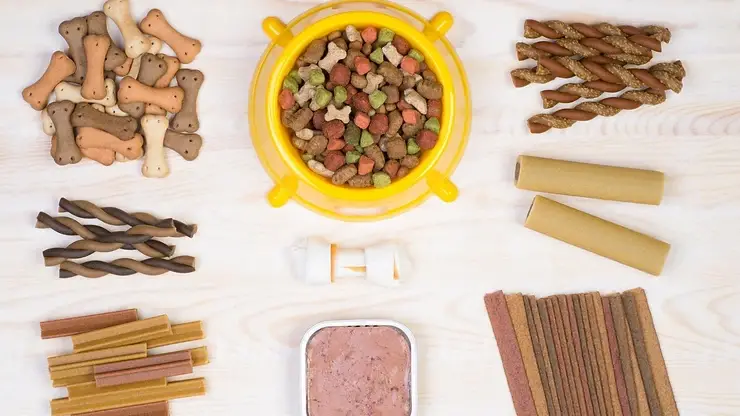
Fruits can be a delightful source of vitamins, minerals, and antioxidants for dogs, offering a healthy and delicious way to supplement their regular diet. However, not all fruits are created equal. Some are perfectly safe and even beneficial, while others can pose health risks. It’s important to know which ones are safe before sharing them with your canine companion.
Blueberries: A Nutritional Powerhouse

Blueberries are an excellent example of a fruit that offers a wide range of benefits for dogs.
These tiny berries are bursting with antioxidants that help protect cells from damage caused by free radicals. Free radicals are damaging chemicals that can cause a wide range of health problems within a dog’s body. Antioxidants like those found in blueberries can help to neutralize and remove free radicals, thus protecting your dog’s cells. The high fiber content in blueberries is extremely valuable. Fiber helps to promote healthy digestion and helps support a healthy gut microbiome. In addition to antioxidants and fiber, blueberries are a good source of vitamins C and K, and manganese.
Furthermore, blueberries are generally low in sugar, which is advantageous for dogs, particularly those who are prone to conditions like diabetes. They are also believed to support cognitive function and healthy aging.
When giving blueberries to your dog, it is important to do so in moderation. Too many blueberries can lead to digestive upset. Always wash the blueberries properly before giving them to your dog. The stems and leaves can be harmful.
Apples: Core Considerations for Safety
Apples are another popular fruit choice for sharing with dogs. However, it’s crucial to understand the important factor of the core. Apple cores contain seeds and stems. These parts of the apple contain small levels of cyanide. Cyanide in small doses can cause a variety of issues in dogs ranging from increased heart rate to problems breathing in severe cases.
When offering an apple to your dog, ensure to remove the core, seeds, and stem. The flesh, however, can be a tasty and nutritious treat for your dog.
Apples are a good source of fiber, vitamin C, and antioxidants, which promote a healthy immune system and contribute to overall well-being. They can be beneficial for your dog’s dental health since biting and chewing a piece of apple can help to scrape away plaque and tartar buildup. Nonetheless, moderation is key to avoid any digestive issues that might arise from overconsumption.
Bananas: A Sweet Treat in Moderation
Bananas are a source of potassium, vitamin B6, and fiber. They can be a good source of energy. Potassium is important to maintain healthy muscles but, when taken in excess, causes kidney issues in dogs. Vitamin B6 is also important but excessive intake can lead to nerve irritation and/or muscle weakness.
The natural sugars in bananas should be consumed in moderation. Overindulgence in bananas can cause digestive problems like diarrhea and vomiting.
If you’re planning to share bananas with your dog, offer them in small quantities, sliced or mashed, and monitor their reaction. It can be helpful to introduce a new food like banana slowly to help your dog’s body adjust to the new change of diet.
Safe Vegetables for Dogs
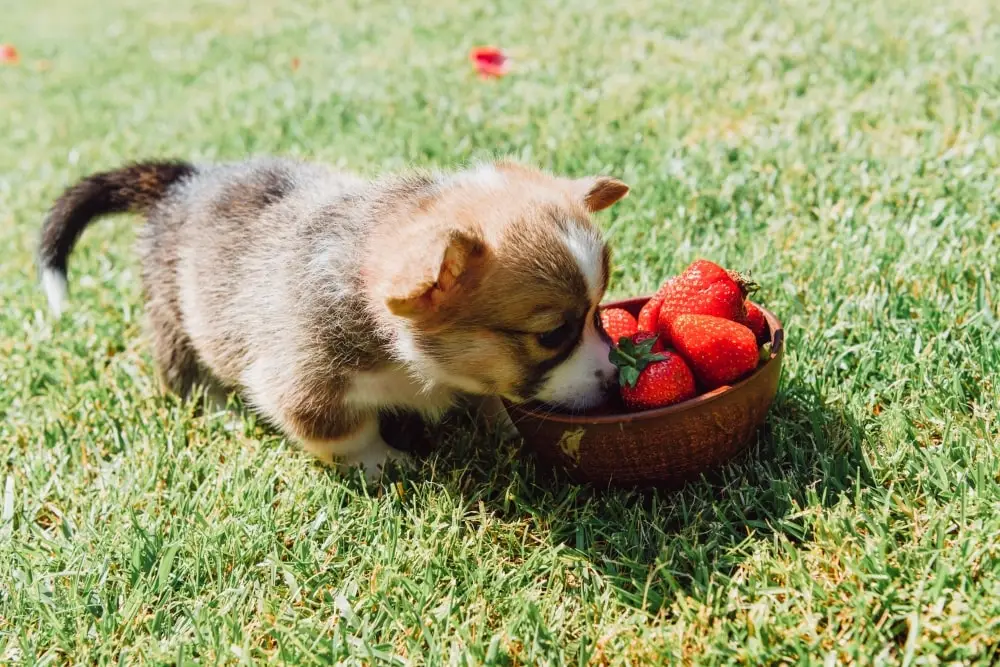
Vegetables offer a fantastic way to add vital nutrients to your dog’s diet, providing a balanced nutritional profile that supports their overall health.
Carrots: Crunchy Benefits
Carrots are a remarkably versatile and nutritionally dense vegetable that is incredibly suitable for dogs. They are rich in beta-carotene, a pigment that converts to vitamin A in the body. This powerful vitamin plays a significant role in maintaining healthy vision and supporting overall immune function in dogs.
Carrots are also a great low-calorie snack for dogs. This is important for those dogs that are prone to putting on excess weight. This is especially true for dogs who are less active.
Carrots contain fiber, which promotes healthy digestion and helps regulate bowel movements.
Both raw and cooked carrots are suitable. If you decide to provide cooked carrots, make sure to cook them in a way that removes most of the water content. The water content in carrots can be very high and this can lead to diarrhea in dogs that are used to their food having less water.
Providing carrots in small pieces is a good way to ensure that your dog does not choke when eating them.
Sweet Potatoes: Nutrient-Rich Delight
Sweet potatoes provide another wonderfully delicious and nutritious option for dogs. These root vegetables are packed with beta-carotene, vitamin C, and fiber. Beta-carotene is important for a healthy immune system. Vitamin C acts as an antioxidant and can play a role in overall health. Fiber helps stabilize the bacteria that live in the dog’s gut.
Sweet potatoes are easy to digest for dogs, making them a suitable option for dogs with sensitive stomachs. It’s a great choice for dogs who are recuperating and a good option for dogs who experience problems with digestion.
When giving sweet potatoes to your dog, ensure that they are cooked and without added ingredients. Cooking sweet potatoes helps make them easier to digest. Sugar can be harmful to dogs and should not be added to any treats before you feed them to your dog.
One good way to add them to your dog’s diet is to incorporate sweet potatoes into home-cooked meals. They can also be offered as small treats in moderation.
Green Beans: Low-Calorie Snack
Green beans are an excellent source of vitamins A, C, and K. They also provide a good source of fiber. These vitamins support your dog’s immune system, vision, and blood coagulation.
Green beans are a low-calorie option and provide a relatively low amount of protein. These characteristics make them a suitable option for overweight dogs. They are easy to digest, meaning that they are a good choice for those dogs who experience problems with their gut.
Green beans can be given cooked or raw, but always make sure they have been washed and cut into smaller pieces before being given to your dog.
Proteins and Their Importance
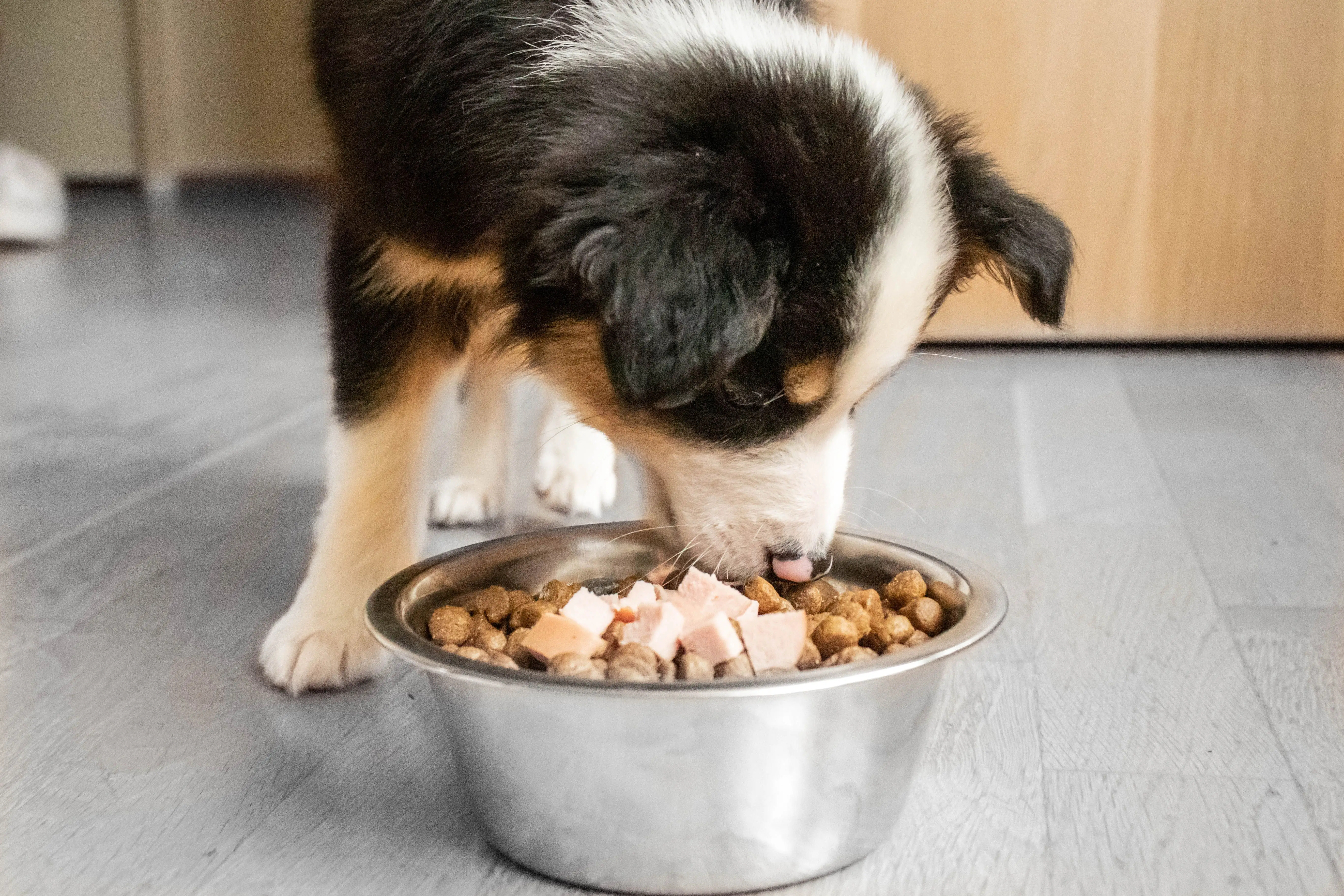
Proteins are the building blocks of life, and a vital component of a healthy dog’s diet. They play a critical role in building and repairing tissues, producing enzymes and hormones, and supporting a healthy immune system.
Cooked Eggs: A Protein Source Dogs Love
Eggs are an exceptionally good source of high-quality protein. They are also rich in amino acids, vitamins, and minerals. Dogs can easily digest eggs, and they provide a fantastic source of protein, especially for dogs of all ages.
Cooked eggs, particularly boiled or scrambled, are the safest way to incorporate them into a dog’s diet.
Eggs are a rich source of biotin, an important vitamin for skin and hair health.
They’re also a good source of choline, which can be beneficial for brain function in dogs.
Cooked eggs can be added to a dog’s regular food, or they can be given as a small treat.
Plain Cooked Chicken: A Versatile Option
Plain cooked chicken is a widely recognized and preferred protein source for dogs. It’s lean, packed with protein, and relatively easy to digest.
Chicken, especially white meat, offers a very digestible and high-quality protein source. The high-quality protein in chicken can help to maintain a healthy weight in your dog. It is also a great way to ensure that your dog is getting enough protein to keep them active and healthy.
When giving chicken to your dog, ensure that the bones are removed. Chicken bones can splinter and cause harm if ingested. It’s also important to avoid cooking chicken with added oils or spices that can be harmful to dogs.
It’s also a good option for dogs who are recovering from an illness or injury. The easy-to-digest protein can help them to rebuild muscle and make a good recovery.
Fish: Omega-3 Fatty Acids for Healthy Skin
Fish is a fantastic protein source containing essential fatty acids, including omega-3s. Omega-3s are particularly beneficial for canine skin and coat health. It can also help to ensure that your dog’s joints function properly.
The omega-3s in fish are known to reduce inflammation and can help to reduce shedding.
When feeding fish to your dog, it’s essential it’s cooked and boneless. Never give your dog raw fish, as it can contain bacteria that can be harmful.
Salmon, tuna, and cod are examples of fish that dogs can have in moderation.
Grains and Their Role in a Dog’s Diet
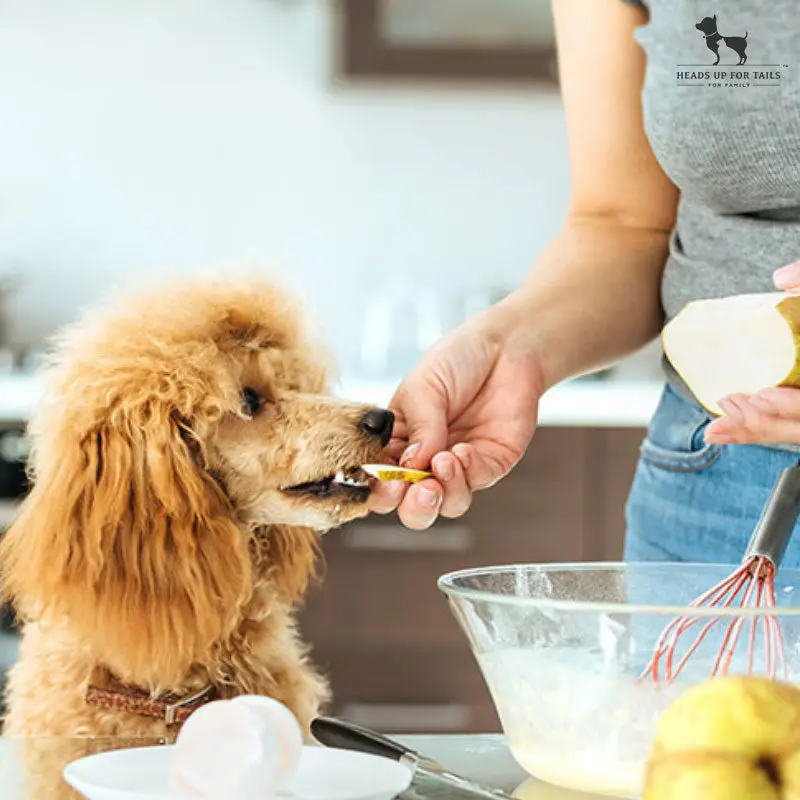
Grains can contribute valuable nutrients to a dog’s diet, including essential amino acids, fiber, and vitamins.
Brown Rice: Easy Digestion
When considering the types of grains that can form a part of your dog’s diet, brown rice is a great example of a safe choice. Brown rice offers an array of benefits for dogs.
Brown rice is a good source of complex carbohydrates, which can provide a steady source of energy. The fiber in brown rice can help support digestion.
Brown rice is a good source of fiber, vitamin B, magnesium, and iron. These are all beneficial for your dog’s health.
Brown rice is easy to digest and is therefore a good option for those dogs that have sensitivities to specific foods.
Oats: A Good Fiber Source
Oats are another grain that can safely be included in a dog’s diet. Oats contain several essential nutrients and are easily digested.
Oatmeal and other oat-based foods are a great source of fiber and can support digestive health. Fiber can help support gut health and can result in fewer episodes of diarrhea.
Oats are a good source of vitamins and minerals, including vitamins B1, B6, iron, and zinc. These vitamins and minerals can support cardiovascular and immune health.
When giving oats to your dog, make sure to use plain, cooked oats without any added sugar or ingredients that could be harmful.
Safe Snacks and Treats
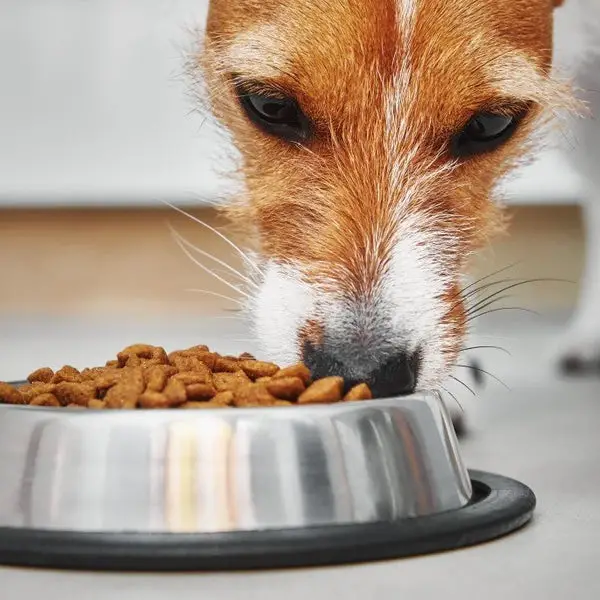
Every dog deserves a treat occasionally. While commercial treats can certainly be a good option, there are also a variety of safe and satisfying homemade snack options for your dog to enjoy.
Peanut Butter: A Favorite, But Check Ingredients
Peanut butter has gained tremendous popularity among dog owners as a delicious and easily administered treat. Dogs generally adore its taste, and it can be a good source of protein and healthy fats.
Before giving your dog peanut butter, it’s essential to check the ingredient list for the presence of xylitol. Xylitol is artificial sugar that is incredibly toxic to dogs. Eating even small quantities of xylitol can be fatal. For those peanut butter that don’t contain xylitol, it’s still wise to administer peanut butter in moderation.
Peanut butter can be given to your dog in small quantities directly. It can also be used as a way to hide medication.
Peanut butter contains healthy fats that can help with the immune system of your dog.
Yogurt: Probiotic Benefits
Yogurt is another potentially good option for offering as a healthy snack in small quantities.
Yogurt containing probiotics and beneficial bacteria can support a dog’s gut health and promotes a healthy intestinal lining. This can lead to a healthier immune system and help reduce digestive related issues.
Ensure the yogurt you select is plain and unsweetened. Added sugars, artificial sweeteners, and artificial flavors can cause health problems for dogs.
Yogurt can be given to dogs who experience problems with their stomachs, but it should still be provided in moderation.
Foods to Avoid
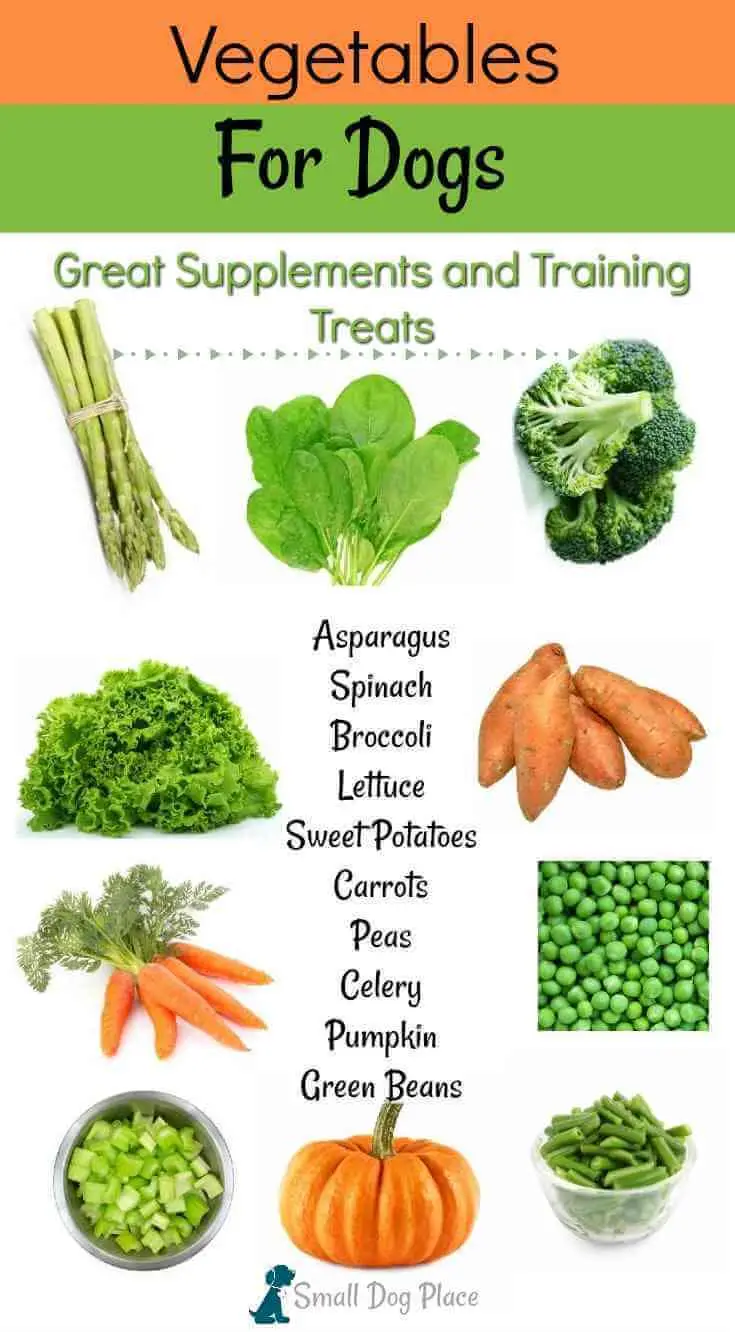
While it’s great to explore the range of safe and beneficial foods for dogs, it’s equally important to be aware of the foods that can be harmful or toxic to them.
Toxic Foods: Grapes and Raisins
Grapes and raisins, despite being fairly common in human diets, are incredibly toxic to dogs. The toxic component of grapes and raisins is unknown. The toxic substance in grapes and raisins can cause kidney failure in dogs. For many dogs, even a small quantity of grapes or raisins can be enough to lead to severe medical issues. Once your dog has ingested grapes and raisins, seek immediate veterinary attention.
Dangerous Nuts: Macadamia Risks
Macadamia nuts are another food that can be extremely toxic to dogs.
The specific toxin in macadamia nuts is not fully known, but it impacts the dogs’ nervous and muscular systems. The symptoms can start within a few hours of eating the nuts . Symptoms include vomiting, tremors, and weakness.
Ingesting a macadamia nut can affect the dog’s joints and muscles. Some dogs experience paralysis. In severe cases, macadamia nut consumption can be even fatal.
Cooking Methods That Enhance Safety
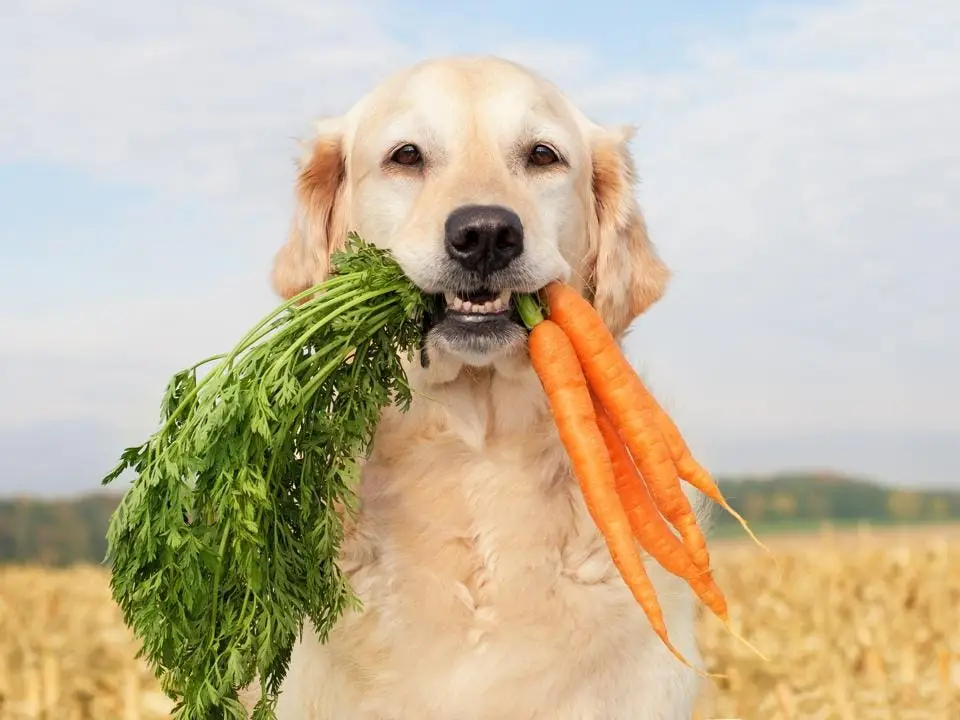
The way we prepare food can significantly impact its safety and digestibility for dogs. Understanding the various cooking methods and their potential benefits and drawbacks is critical for providing a healthy diet.
Boiling vs. Steaming Vegetables
Boiling and steaming are two common cooking methods for preparing vegetables suitable for dogs. Boiling involves immersing vegetables in water, whilst steaming involves cooking food with steam. Both can soften foods and reduce the risk of choking.
Boiling can often lead to a loss of important vitamins and nutrients through leaching. It’s important to use a relatively low temperature so as not to reduce the nutritive value of the food to any greater extent than necessary.
Steaming the food can preserve more vitamins and minerals when compared to boiling. It’s important not to overdue the steaming process. Overcooked food results in a loss of flavors and may impact the food’s nutritional composition.
Both boiling and steaming can make the food easier to digest for dogs, especially those with sensitive stomachs.
Raw Diets: Pros and Cons
In recent years, raw food diets have grown in popularity for dogs, but they’re not without controversy.
Advocates of raw diets argue that feeding a raw food diet to dogs more closely mimics their natural diet. It’s believed that raw food can provide a greater variety of nutrients and enhance digestion.
However, it’s important to acknowledge the potential risks associated with raw food diets. It’s difficult to ensure that raw food is free from the presence of bacteria. Raw foods carry the risk of bacterial contamination, which can be very damaging to dogs.
It is also difficult to ensure a balanced and complete diet when feeding a raw food diet. Without taking into account the needs of an individual dog, issues like deficiencies can occur.
The Role of Moderation in Feeding
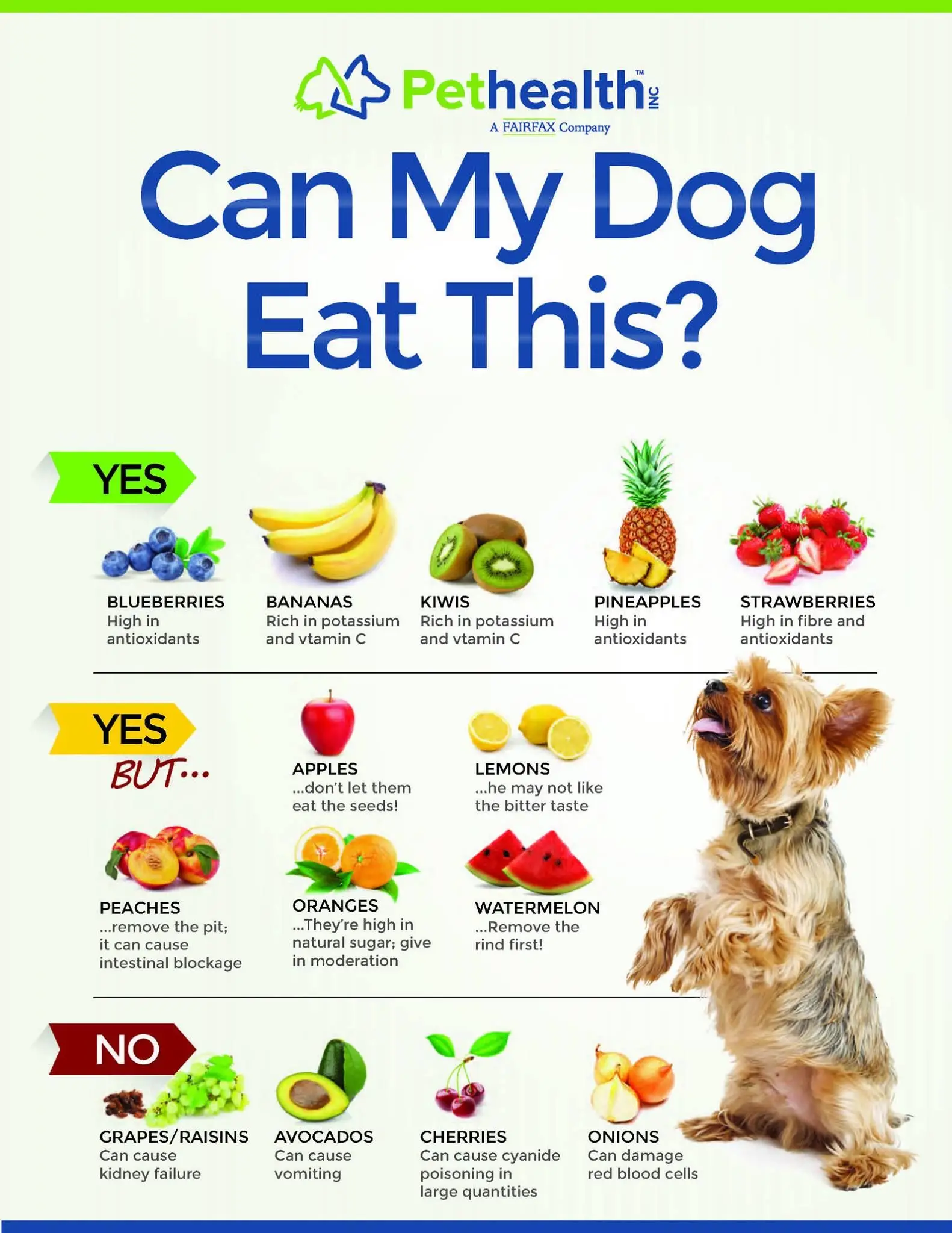
Moderation is a fundamental principle when it comes to providing food for our dogs. It’s tempting to provide our beloved pets with leftover treats, but indiscriminate feeding can lead to obesity or digestive upsets.
Portion Control: Balancing Treats with Meals
Portion control is vital to maintain a dog’s optimal weight and prevent health problems like obesity. By understanding your dog’s daily calorie requirements and adjusting portion sizes of their commercial dog food, treats, and any additional food offered, you can promote a healthy weight and maintain good health.
Calorie requirements vary depending on a dog’s lifestyle, age, and breed. Active dogs require more energy and therefore more calories than passive dogs. Older dogs, as compared to younger dogs, require fewer calories. Large breed dogs compared to smaller breed dogs, also require a different amount of calories.
It’s important to take into account all the food you give your dog to properly assess their daily calorie intake.
Recognizing Signs of Overindulgence
If you’re concerned your dog may be overeating, it’s important to know the associated symptoms. Overeating can lead to a variety of health problems.
Some common signs of an unhealthy weight include a difficulty in seeing the dog’s ribs, increased panting, and a difficulty with moving about.
You may also notice your dog experiencing symptoms like vomiting, diarrhea, lethargy, and excessive thirst.
Monitoring your dog’s weight and their overall health regularly can help ensure they are receiving the right amount of food and experiencing good health.
Consulting with Veterinarians
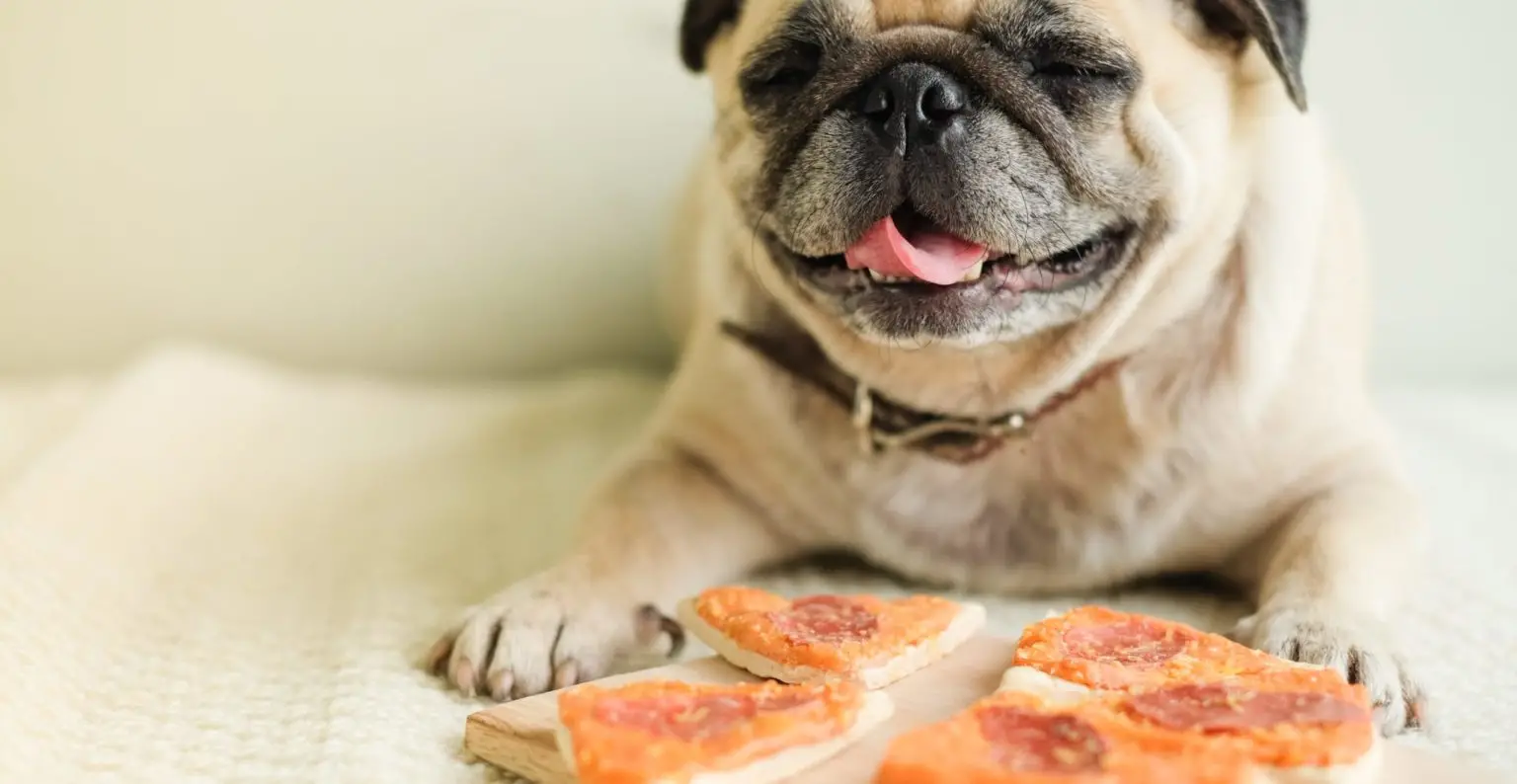
The Importance of Professional Guidance
Veterinarians offer a valuable resource of expert knowledge when it comes to feeding your dog. They can help you devise a dietary plan that’s customized to your dog’s age, breed, activity level, and health conditions.
Veterinarians can help assess issues such as allergies and provide recommendations for specific nutrients. They can also perform examinations to monitor body condition score and assess the health of various parts of a dog’s body. Using this information they are able to assess if a dog’s diet needs to be changed.
Veterinarians will often perform blood tests and/or urine tests to assess overall health. The outcomes of these tests can help in assessing dietary changes that need to be made to ensure a dog’s prolonged health.
Regular Health Check-Ups for Dietary Adjustments
Regular check-ups with your veterinarian are a chance to review your companion’s eating habits and body condition. Changes in these can be indicative of potential problems and/or possible adjustments to their dietary needs.
Regular checkups can ensure your vet has a good understanding of your dog’s nutritional needs and history. They can more accurately assess any dietary changes that are needed for your dog’s health.
Educating the Community on Dog Nutrition
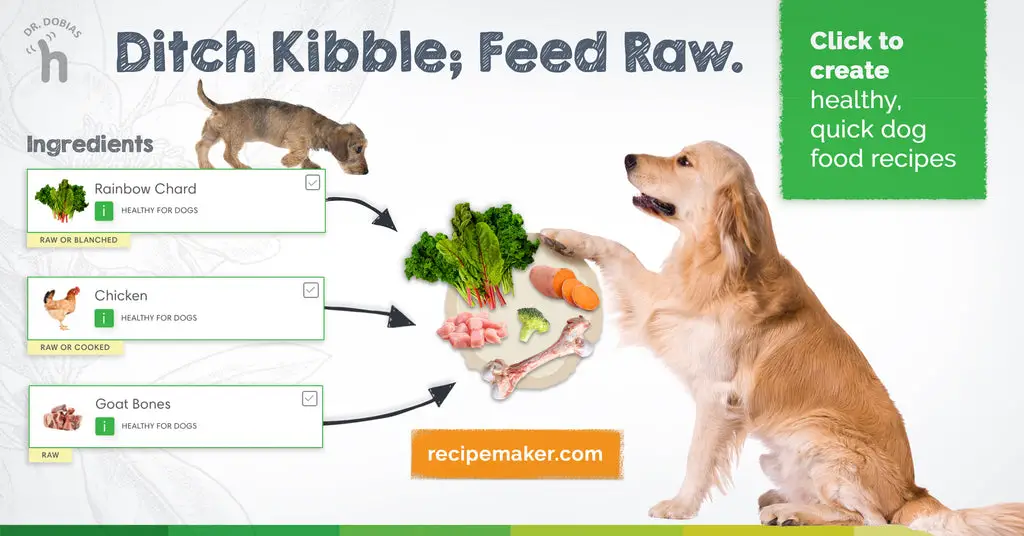
As responsible pet owners, we have a unique opportunity to extend our knowledge and promote a healthy, holistic approach to pet care within our communities.
Sharing Knowledge with Fellow Pet Owners
Engaging in conversations with other dog owners is a great way to raise awareness about safe and healthy eating practices for dogs. By providing information and exchanging experiences with other pet owners, we can inspire and support one another to make knowledgeable and responsible choices relating to dog nutrition.
One good way to share information is through online communities. You can connect with other dog owners through social media, community forums, or events organized by local animal charities or groups. Sharing your experiences and knowledge in a positive way can help create a more knowledgeable community.
Creating Awareness Around Food Hazards
Raising awareness about the risks associated with certain food items is crucial for protecting dogs from potentially life-threatening complications. Sharing information about the specifics of toxic foods and the dangers of overindulgence can help prevent health problems locally.
One way to achieve this goal is to partner with local vets and animal shelters. These resources have the opportunity to communicate with a wide range of people and can help with providing a good foundation for education and awareness.
You can also organize educational materials and awareness events for dog owners within your area. The materials you develop can include the dos and don’ts of dog food and treats, signs of food poisoning, and information on the importance of monitoring a dog’s diet.
Conclusion
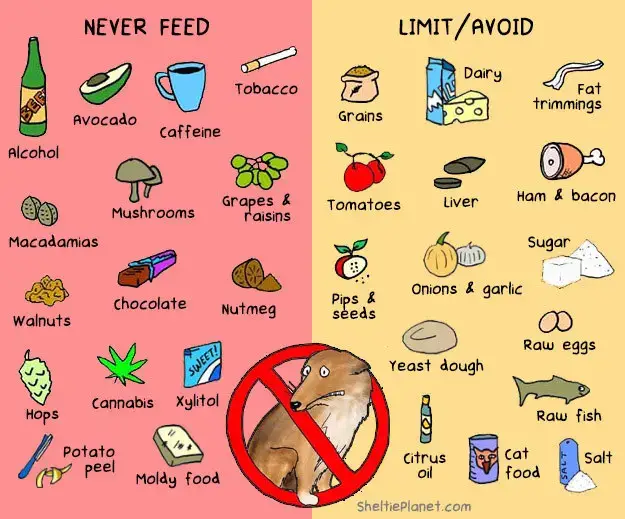
Providing a healthy and fulfilling life for our beloved canine companions is a shared responsibility that extends beyond basic care and affection. It encompasses a deep understanding of their dietary requirements. By embracing the principles of safe and balanced nutrition, we empower ourselves to enhance their health, vitality, and longevity.
The path to optimal canine nutrition begins with a solid understanding of their dietary needs. This includes recognizing that dogs, despite their omnivorous nature, have specific dietary restrictions. Incorporating a variety of nutrient-rich foods, including select fruits, vegetables, and proteins, can offer a diverse nutritional profile. Remember to always consult with your veterinarian to design a dietary plan that is perfectly tailored to your dog, factoring in their age, breed, and overall health.
The journey of responsible canine nutrition isn’t just about meeting their basic needs; it’s about forging a deeper connection with them through intelligent and informed choices. We can further enhance our roles as responsible dog owners by spreading knowledge and awareness within our communities. By promoting a shared understanding of safe eating practices and potential dangers, we can create a healthier and more informed environment for our canine companions to thrive. Through this thoughtful approach, we can ensure that our dogs have the nourishment they need for a happy, lively, and enduring life by our side.

